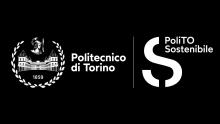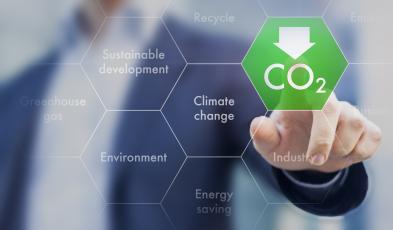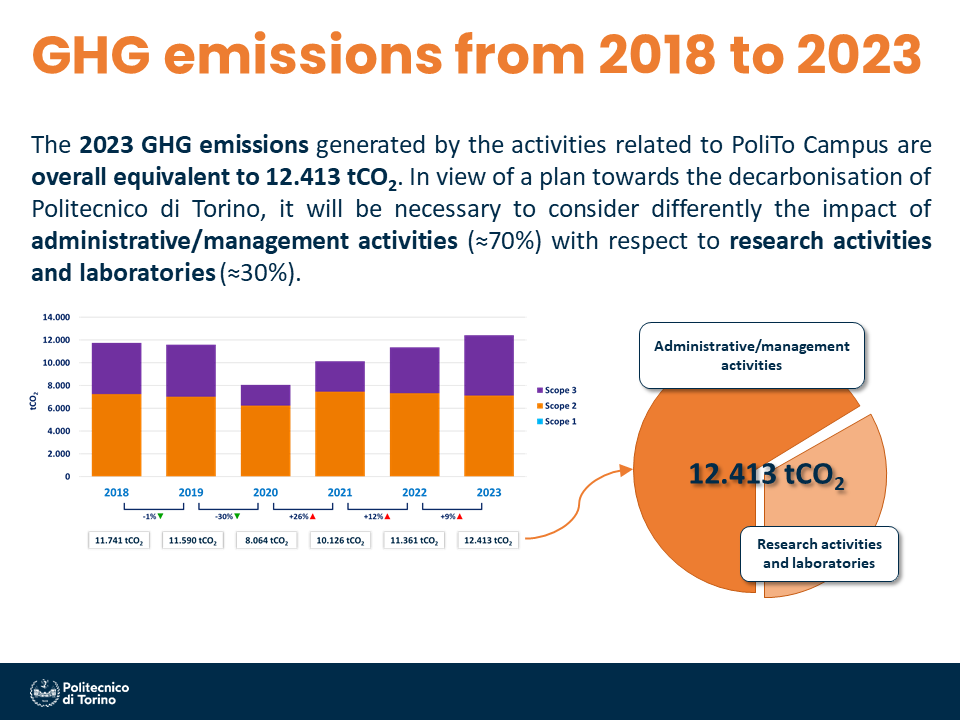PoliTO is committed to reduce and rationalize its energy consumption and environmental impact as follows:
- by reaching energy efficiency;
- with the design of new venues according to quality standards (ITACA Protocol sustainability certificate) and reusing the existing structures;
- by using efficient facilities and implementing self-generated energy from renewable sources;
- by the development and enhancement of green spaces and the adoption of Nature-Based Solutions (NBS).
- by monitoring electrical and heat consumption for a more effective management.
The constant monitoring of enegy usage also allows a periodical measurement of CO2 emissions, thus giving evidence of PoliTO progress towards decarbonization.

Towards Carbon Neutrality by 2040
The path toward achieving the ambitious goal of zero emissions by 2040 — ten years ahead of the international “Net Zero” targets — represents a major challenge for the University. It requires the launch of immediate and concrete short-term actions as well as the definition of a multi-year Decarbonization Plan aimed at reducing both direct and indirect CO₂ emissions.
“In recent years, as part of the Network of Universities for Sustainable Development (RUS), we have worked on developing a protocol for monitoring emissions within universities, which has proven to be an excellent foundation for building our emissions dashboard. Based on this data, the University can make informed decisions and implement targeted actions to achieve carbon neutrality while also supporting the City of Turin’s challenging journey toward climate neutrality. As one of the 100 European ‘Mission Cities,’ Turin is becoming a hub for climate innovation and experimentation.”
Patrizia Lombardi, Vice Rector for Sustainable Campus and Living Lab
“The path we are about to take will have an impact on all the University’s technical and administrative structures, which are called to work together so that all areas of activity in the coming years converge toward the shared goal of decarbonization.”
Vincenzo Tedesco, Director General
Politecnico di Torino has developed its own greenhouse gas emissions inventory following the standards of the “GHG Protocol Corporate Accounting and Reporting Standard (2004)”, analyzing direct emissions (Scope 1), indirect emissions from purchased and consumed energy (Scope 2), and all other indirect emissions generated by the University (Scope 3).
The approach adopted involved the various Green Team working groups and the University administration to identify and assess data from the different emission sources.
The University’s GHG emissions monitoring covers the years 2018–2023 and includes the following categories:
- Scope 1: Vehicle fleet
- Scope 2: Electricity and thermal energy (mainly from district heating)
- Scope 3: Staff commuting, business travel, cloud services, and office supplies
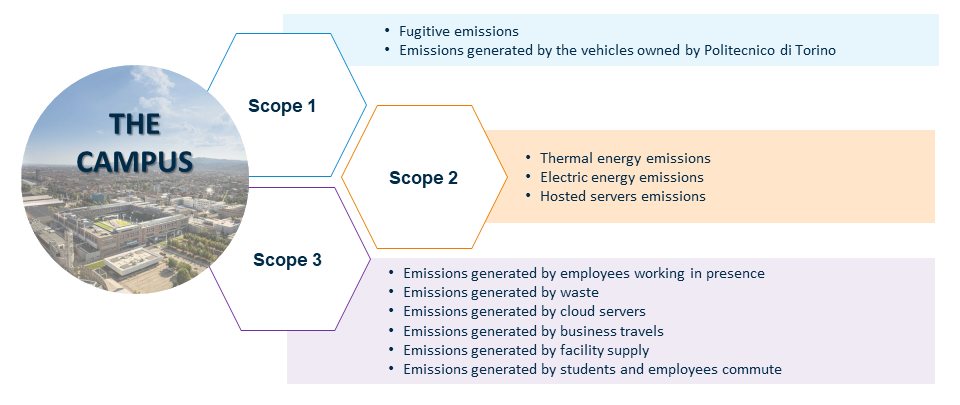
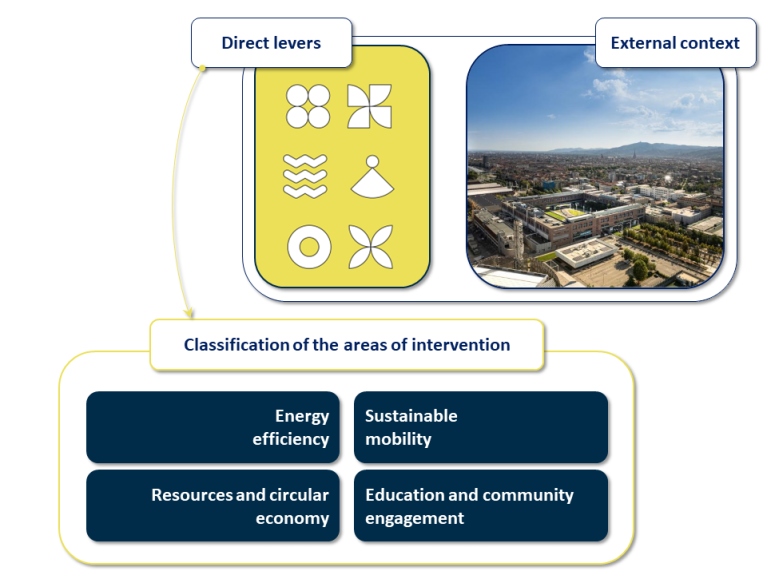
The emissions inventory highlighted the following key aspects:
- Clear identification of the main areas responsible for CO₂ production (heating, electricity, mobility).
- The need to engage the academic community in the overall assessment of actions and the completion of the comprehensive program.
- The need to integrate information in certain areas (e.g., waste, food) and to increase the level of detail in data collection in order to identify targeted local actions (e.g., the impact of individual buildings).
- The opportunity to complete the simulation with data representing the entire University community, including students (regarding mobility and other factors), to achieve the best possible results also for Scope 3.
- The opportunity and necessity to distinguish emissions related to regular operations from those generated by specific research activities.
These analyses and considerations have led to the identification of the first short-term actions, which include the enhancement of the University’s photovoltaic systems, the completion of window replacement, the progress of the LED lighting upgrade plan, the strengthening of environmental monitoring through the implementation of new sensors in University facilities, and the optimization of thermal and electrical system performance.

Politecnico di Torino is taking action to address the climate crisis and, in addition to the measures already implemented in recent months, aims to maximize results by actively involving its community.
The tool adopted is the Call for Ideas, designed to encourage the development of effective and innovative solutions to be applied across the University’s campuses.
